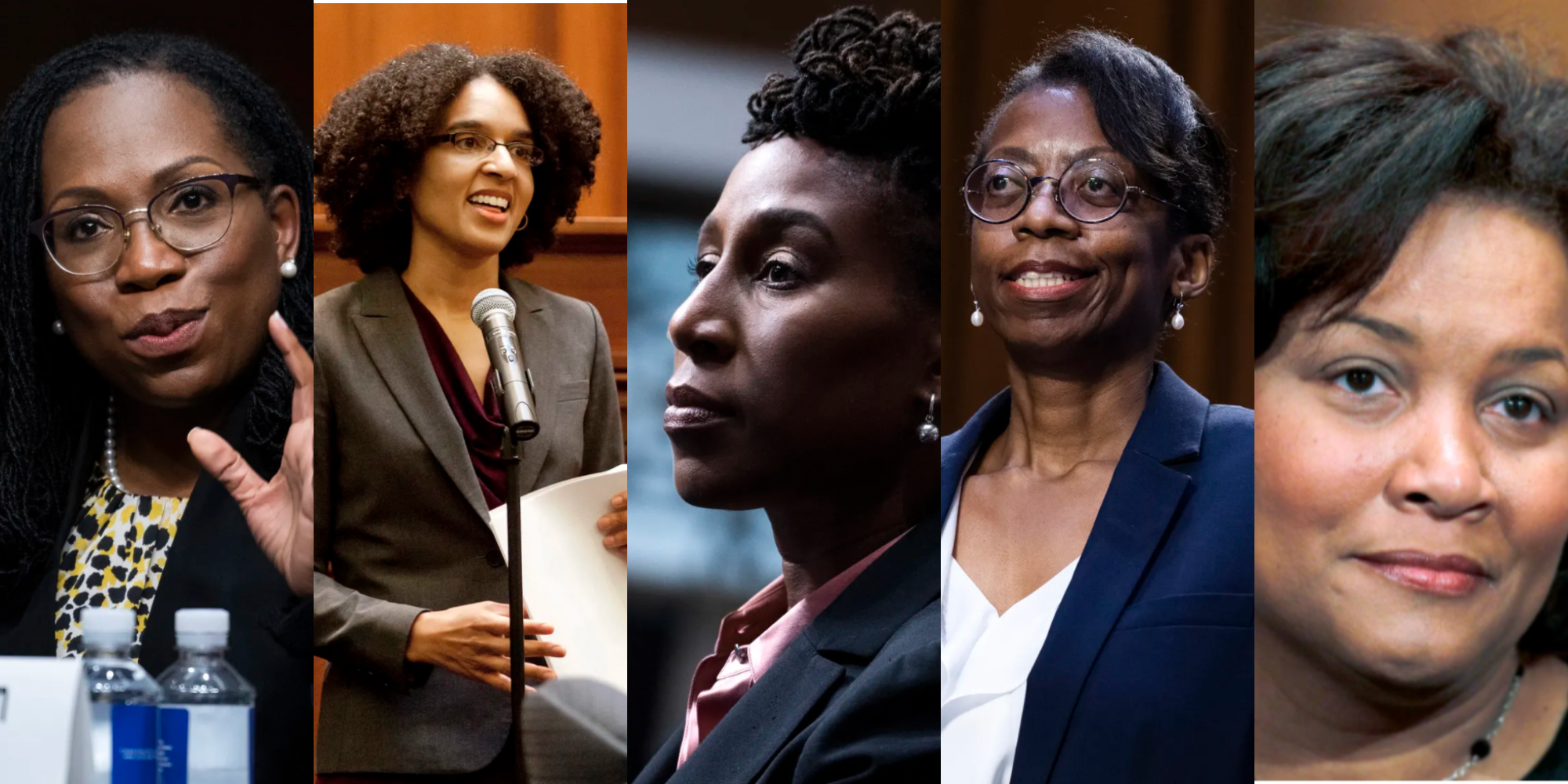From a Black Woman at Harvard, Here’s Why We Need a Black Woman On SCOTUS

President Joe Biden’s pledge to nominate the first Black woman in the court’s 233-year history is not radical, clumsy, or affirmative action. It is the recognition that our democracy works when we the people can equally participate and represent some of our most prominent democratic institutions. We need justices on the court that reflect the diversity of American experiences and use their insight to impartially uphold the rule of law.
Representation matters because you can’t be what you can’t see. If you don’t see yourself represented at the highest levels of leadership, you feel like you don't belong. I may be studying at the John F. Kennedy School of Government but seeing Black women in political leadership is rare. As a Black woman who has often navigated the political space as being the only, I am at the Harvard Kennedy School to change this reality. I am committed to becoming the representation I didn't have as a young person.
In 2022, the United States has never had a Black woman as Governor, has no Black women in the US Senate, and has never selected a Black woman for the SCOTUS. Biden confirming a Black woman to the Supreme Court will send a powerful message to young Black women all around the US that they are equally as capable & deserving to be nominated to the highest court.
Many past presidents, both Republican and Democrat, have made pledges to nominate demographics to the highest court. Yet, often Black women are excluded from these lists, in part because we are both Black and female. The Black nominees end up being Black men and the female nominees end up being white women. President Biden realizes we need to be clear, so Black women are not left behind.
Having a nominee who has the lived experience of being Black and female yields the court, and our country, greater insight and understanding on the diversity of American experiences. We have critical cases before the court including abortion rights and affirmative action — these are cases that could dramatically shape the next decade of our lives, especially for young people. We need people who have differing life experiences that are able to assess the law accordingly.
It’s important to remember that the list of Black women whom President Biden is selecting from are some of the most qualified and highly esteemed scholars of our time. These women are distinguished in their field irrespective of them also being Black women. For that, we should give them the level of respect and dignity they deserve. We should judge them based off their judicial temperament, character, and judicial fitness—anything other than this is a diversion.
This ABC poll noted that 76% of Americans want Biden to consider “all possible nominees” for SCOTUS. However, the poll also showed this was largely driven by political partisanship. 95% of Republicans want Biden to consider all nominees while only 54% of Democrats who say the same. Therefore, it is difficult to assess if respondents are answering the question based on merit, or only according to their political party.
At the same time, the poll doesn’t capture the changing racial attitudes of most Americans who in fact support efforts for racial equality in the US. In 2020, two-thirds of Americans supported racial justice protests signaling that racial equality is a cause of concern for all of us, not just some of us.
A recent exchange with my younger sister about a year ago gives me hope for the future. My younger sister is 13 and was born the year our first Black President took office. In 2021, I watched in wonder as Kamala Harris became the first Black woman to become Vice President of the United States. I was overjoyed. Then I looked over to my younger sister. She didn't understand why I was so joyful. She grew up under our first Black President. She grew up in an environment where the leader looked like her. It was more of a shrug moment for her than it was for me, and it was then I realized—we need more young women growing up knowing that they too can be Vice President—and now, a Supreme Court Justice.
Raie Gessesse is studying for a Master’s in Public Policy at the Harvard Kennedy School. She is the former Midwest Program Manager with IGNITE National, America's largest most diverse organization for young women's political leadership.
